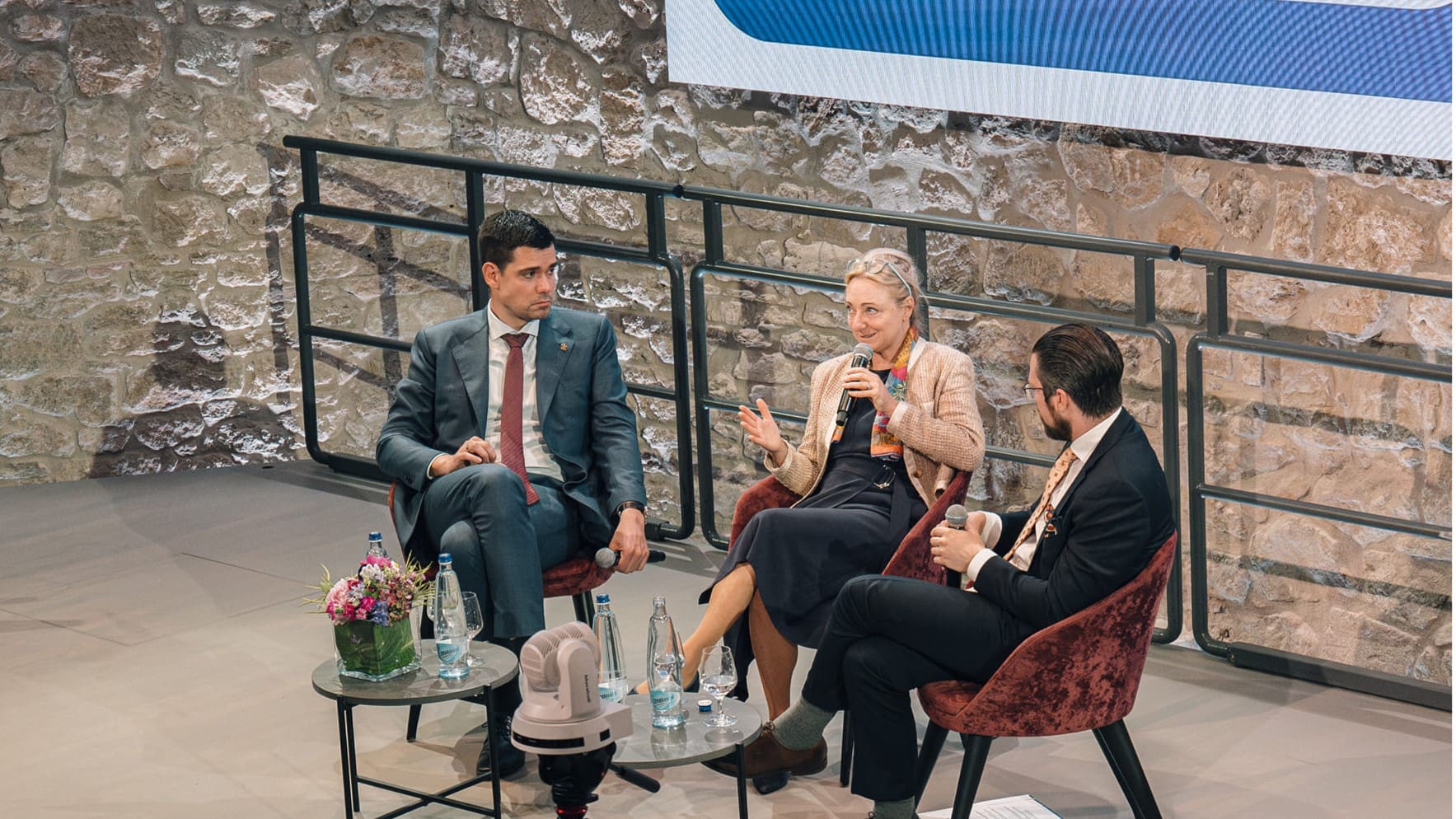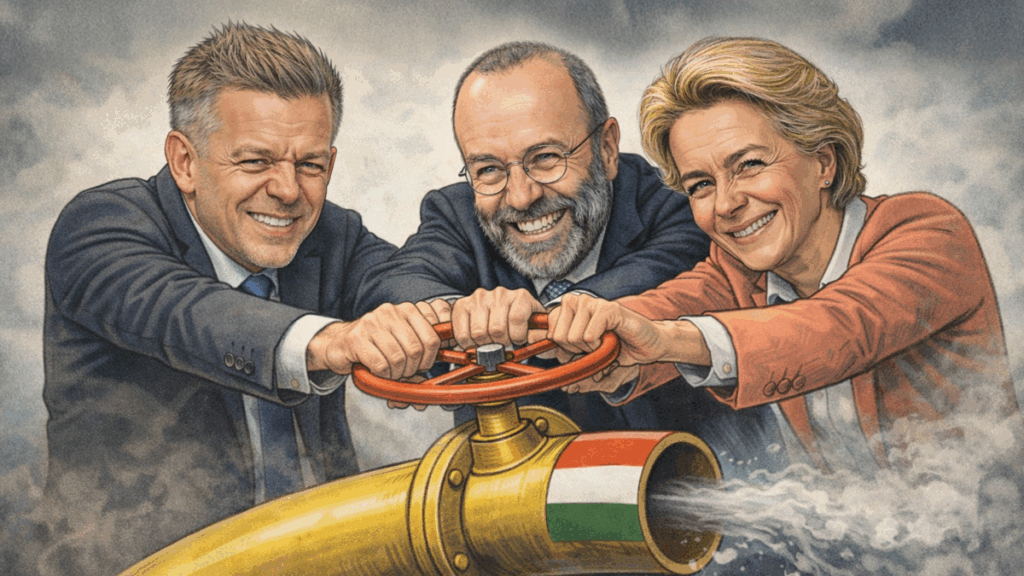The Free Market Road Show, a series of events organized in collaboration with the Austrian Economics Center to promote free market economics and libertarianism, was held for the ninth time at the Danube Institute in Budapest. The subtitle of the Road Show, ‘Shatter Barriers–Ignite Change,’ embodies a commitment to exploring new frontiers in policy-making, economics, and social discourse.
Attendees were treated to three highly engaging panel discussions on the following topics: the digital currencies that many central banks are planning to introduce and the related issues of individual freedom and privacy; new economic strategies for a post-COVID world; and how global security threats, such as wars and migration, affect trade.
Should Central Banks Go Digital?
Barbara Kolm, founder and Director of the Austrian Economics Center, opened the first panel discussion, which described the digital euro as a double-edged sword. Her presentation focused on Central Bank Digital Currencies (CBDCs) proposed by various state central banks. Kolm emphasized that she does not support either EU-wide or state-level CBDCs, arguing that this is beyond the central banks’ mandate. ‘Their mandate—at least for the European Central Bank—is to have price control and ensure financial market stability. And that’s it,’ Kolm stressed.
According to the economist, state-issued digital currency not only represents an overstepping of the central banks’ powers but also offers little practical benefit, as it wouldn’t simplify payments beyond what we already achieve with bank cards and digital wallets. However, Kolm underlined the need to distinguish between digital currency promoted by central banks and private payment solutions, noting that there is no issue with initiatives that originate from the private sector.
Barbara Kolm also highlighted the dangers of marginalizing and potentially abolishing cash,
which she argued remains the safest form of payment. She stressed that people should have the freedom to choose their payment methods. The biggest concern, however, lies in the areas of privacy and individual rights. ‘We don’t yet know if it will be programmed or if it will run within accounts; this is still under debate. But if it’s programmable, then where do we end up?’ she asked, raising concerns about the protection of personal and sensitive data.
According to Ádám Banai, Executive Director for Monetary Policy Instruments of Hungarian Central Bank, the perception that CBDCs are important solely due to the digitalisation of finance is incorrect. While CBDCs are ultimately a digital solution, their primary purpose—as he pointed out—is to establish a link between central banks and real economic participants.
Banai highlighted several reasons why central banks might want to introduce CBDCs. These include addressing logistical issues, integrating the unbanked into the banking sector, implementing innovations, and facilitating a more efficient transition within the financial and banking sector.
Like Kolm, Banai also raised some problematic questions about CBDCs. First, should they replace cash or bank accounts? He identified anonymity and privacy as major issues. ‘Many people who use cash want a new CBDC that offers anonymity. If you want to replace cash, you have to keep that in mind,’ he stated. He added that this leads to another question: do you trust your central bank enough to believe that it is truly anonymous?
Treating Migration as We Treat Import
In addition to economics and trade, speakers at the conference addressed tough political issues as well. One standout presentation was by Alexander Tokarev, Associate Professor at Northwood University, who discussed the pressing issue of migration from a free trade perspective. Tokarev was highly critical of the Biden administration and the leadership of many European countries, highlighting how migration continues to challenge both Europe and the United States.
‘Because of the insane immigration policies of Biden and some EU leaders, the risk of being punished for breaking our laws today is zero. Instead of jails, courts, fines, and deportations, we offer those who invade our borders rewards free food, housing, healthcare, and education. We give those people unprecedented incentives to come here.’
The professor argued that the idea that free trade and open borders for all go hand in hand must be challenged. ‘I’m here today to suggest that free trade and restricted immigration are mutually reinforcing positions,’ Tokarev declared. He contended that opening our borders to products from low-income countries would reduce the flow of people to our borders. Conversely, if we adopt protectionist measures to shield our economies from cheaper goods, migratory pressure will increase.
‘Protectionism is a violation of the right of private households and firms to extend or deny invitations to their own property. Restricted immigration, on the other hand, means protection from forced integration with unwanted invaders,’ Tokarev continued.
According to him, free trade is not consistent with free migration, and all migration should be invited migration. He outlined an admittedly utopian idea where a migrant can only enter the country if invited by a citizen who owns land. The migrant would have no access to welfare but could acquire citizenship if they met certain criteria.
In addition to the above discussions, conference participants enjoyed several interesting and thought-provoking presentations. José Piñera, Founder and President of the International Center for Pension Reform, discussed how to capitalize pension systems based on the Chilean model. Stephen Klimczuk-Massion, Senior Advisor and Member of the Advisory Board of CANZUK International, guided the audience through the similarities between the economies of Canada and Australia. Other speakers included US economist Richard Ran, Krassen Stanchev, Professor at Sofia University, and Andrew Stuttaford, finance editor of the National Review.
Read our article on another important Danube Institute event:







